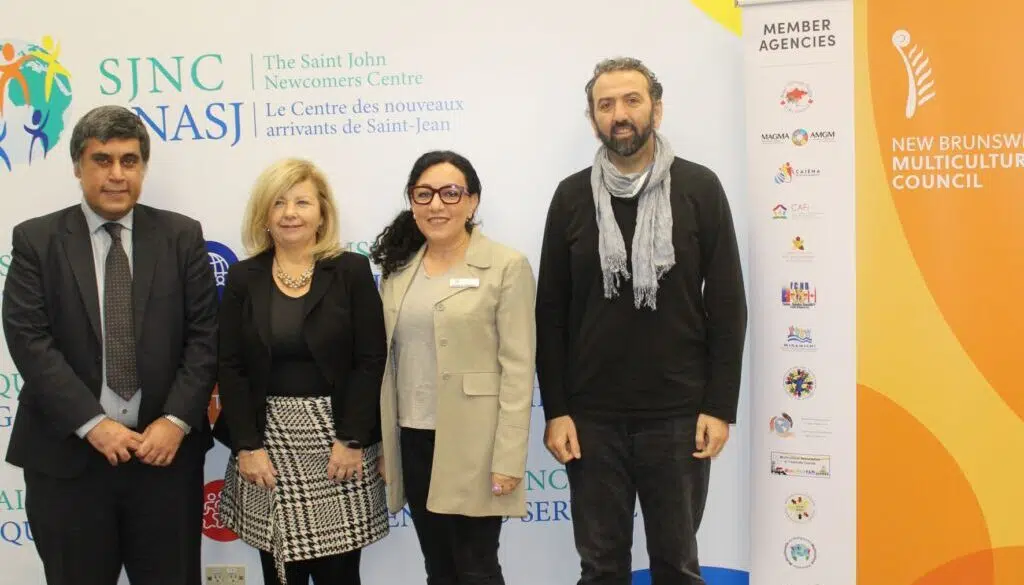There is one thing more than anything else that can keep international students in Saint John, or the province after graduation: opportunity. That’s according to an extensive survey of international students released by the Saint John Newcomers Centre
“Eighty-one per cent of international students, if given the chance, will make New Brunswick home,” says Mohamed Bagha, the managing director of the Saint John Newcomers Centre.
However, 87 per cent of international students say they leave the province because of a lack of meaningful job opportunities, according to the survey.
The results come as the federal government announced plans for Express Entry immigration for foreign workers in industries like health care, construction, and transportation — potential good news for some international students in these in-demand fields.
According to the survey, 80 per cent of international students already have a degree before coming to Canada, and over half have at least five years of relevant work experience. But for the students who are working while here, only 37 per cent are employed in a job related to their field of study.
Bagha says investment is needed from government, employers, and universities to help the students transition into the labour market, for immigration streams to ease their processes, and for networks to be created that will make the students part of the community.
It’s vital for the province to retain these students.
“International students are vital for New Brunswick’s population and economic growth,” says Maura McKinnon, the interim executive director of the New Brunswick Multicultural Council, which co-released the survey.
“In 1972, for every one resident aged 65 and over, there were seven residents aged 15-64 who were contributing to the economic growth of our province. This ratio has changed significantly since then. In 2022, the ratio decreased to 2.8 and the long-term projections predict an even further decline of this ratio.”
And yet the barriers to making this transition from student to resident successful remain.
Only about 35 per cent of international students stay in New Brunswick after graduating, according to a 2021 report from the New Brunswick Institute for Research, Data and Training.
The survey finds that a lack of co-ops and work terms is preventing those crucial connections between students and employers. At the university level, SJNC noted the lack of resources allocated to find international students co-ops and internships, but also acknowledged that the primary role of the university is education and not job placement.
Another gap identified both by the survey and by some of the students who attended the event was the duration after graduation the students had to find a job before their visas expired. The terms cited were between 1-3 years, which can be challenging for a new graduate with no Canadian work experience to find a meaningful job.
Many decide to play the numbers and move immediately to provinces with more opportunities, rather than risk running out their visas in New Brunswick.
“How do we engage employers to create the value that allows them to be able to seamlessly integrate students from the program straight into jobs, so that there’s a clear path for students to stay?” asks UNBSJ Masters of Business Administration (MBA) student, Osayi, who hails from Nigeria.
“Is there a structured way for employers to offer sponsorship to students to fast track [the visa process]?”
Crosby’s is a Saint John business that has had a successful relationship transitioning immigrants who already have their Canadian permanent residency into employment. But it has also run up against visa hurdles as it attempts to hire employees who only have temporary status.
“Where we’ve had challenges is with the student who have applied, gone through interviews, job offer in hand and then… oh, they’re not meeting the immigration requirements, or there’s not a ‘fast stream’ or an easy way to help them, or us, navigate the system,” says Jeannette Howley, vice-president of operations at Crosby’s Molasses.
“We’re a small business. We are pretty new to it, so for our HR folks to kind of find the supports and resources we need to navigate in a timely manner [is difficult],” she says, citing the case of a new grad they had wanted to hire, but who only had 3 months left on their visa, and who they were unfortunately unable to process in time.
That’s a missed opportunity in a system that is still working out the kinks to transition to a clear path to attract and retain talent.
“This is a fairly new phenomenon to New Brunswick,” says Bagha. “I think we are building bridges. This is an opportunity where every stakeholder is coming together.“
Alex Graham is a reporter with Huddle, an Acadia Broadcasting content partner.






Comments